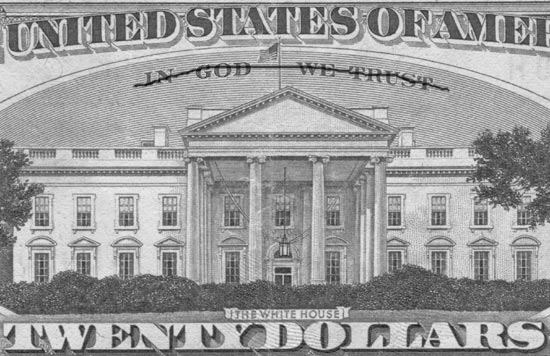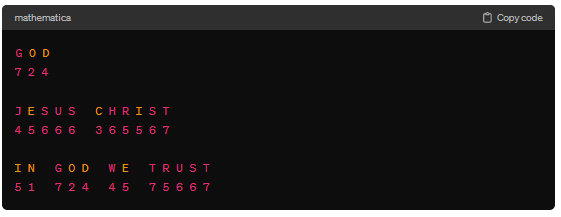Reflective Insights: Challenging "In God We Trust" on U.S. Currency in Courts
A reflection on my 2017-2018 Challenge to Remove "IN GOD WE TRUST" from U.S. Currency.


In 2018, I embarked on a mission to challenge the inclusion of "In God We Trust" on U.S. currency, driven not only by personal beliefs but also by constitutional imperatives. However, my efforts were met with disappointment when the Supreme Court declined to hear my case, despite constitutional concerns regarding freedom of religion, compelled speech, and equal protection under the law. Additionally, the courts overlooked a crucial economic aspect: the hidden costs associated with the use of credit cards and their impact on consumers.
Court's Oversight:
Despite constitutional concerns, the Supreme Court declined to hear the case challenging the inclusion of "In God We Trust" on U.S. currency.
Constitutional principles such as freedom of religion, compelled speech, and equal protection under the law were disregarded by the courts.
Hidden Costs of Credit Card Usage:
Credit card transactions incur processing fees imposed by credit card companies on merchants.
These fees are passed on to consumers, contributing to higher prices for goods and services.
The economic burden of credit card fees disproportionately affects consumers, particularly in transactions at gas stations, medical facilities, and other establishments.
Courts notably refrained from addressing this argument, despite its evident impact on everyday transactions. For instance, many gas stations implement differential pricing for cash and credit transactions, clearly indicating the additional costs incurred by credit card usage.
Cryptography and Victory in War:
Cryptography played a pivotal role in historical conflicts, such as the Battle of Midway, where the Allied forces intercepted and decoded Japanese messages encrypted using the JN-25b cipher. This successful decryption enabled strategic maneuvers that ultimately led to victory.
Drawing parallels to both cryptography and gematria, the encoding of "IN GOD WE TRUST" to "JESUS CHRIST" on U.S. currency can be seen as a subtle acknowledgment of the power of these techniques. It underscores the government's recognition of the effectiveness of encoding messages for various purposes, including religious symbolism.
Here's the Septenary Cipher:


And here's how "IN GOD WE TRUST" and "JESUS CHRIST" look when encoded using the Septenary Cipher:


Adding these numerical values together yields:

Gematria Revelation:
Research into known ciphers revealed that "IN GOD WE TRUST" and "JESUS CHRIST" share identical gematria values when encoded using the Septenary Cipher.
This finding suggests a deliberate attempt to encode specific religious messages within currency, subtly referencing the Christian/Jewish god of Abraham.
Additionally, the year "In God We Trust" was approved by Congress (1956) coincides with the dawn of the atomic age, hinting at a potential comparison between nuclear energy and the concept of the divine.
E = MC^2 Gematria Equation:
In the equation "E = MC^2":


Conclusion: A Call to Action
In conclusion, the battle against the inclusion of "In God We Trust" on U.S. currency is far from over. Despite constitutional concerns, economic disparities, and symbolic injustices, the courts have dismissed such challenges, often labeling dissenters as "unreasonable." However, it is evident that a significant portion of the population disapproves of "In God We Trust" on currency or simply remains apathetic on the topic.
Society mustn't stand idly by and tolerate the entanglement of religion with state-sanctioned instruments. Instead, we must mobilize and flood the courts with challenges against this encroachment on secular principles. Every individual has the right to demand financial instruments free from religious affiliations, and it is through collective action that we can effect change.
Furthermore, anyone seeking to challenge the inclusion of "In God We Trust" on U.S. currency can contact me, and I'll gladly provide my court documents as a draft to start with.
Let us unite in our efforts to advocate for a society founded on principles of genuine freedom, equality, and financial transparency for all.